2024 Spring / Summer
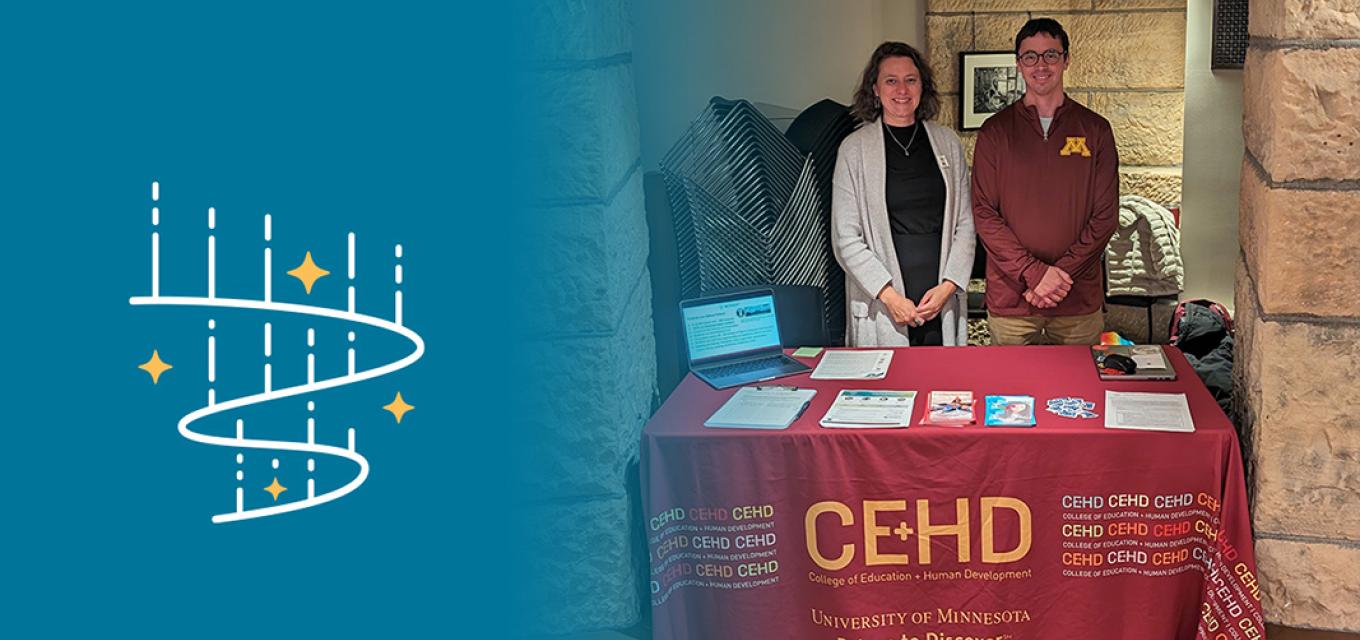
Making computer science inclusive
NORTHERN LIGHTS COLLABORATIVE FOR COMPUTING EDUCATION ADDRESSES COMPUTER SCIENCE INEQUITIES
It may come as a surprise to many people that for the percentage of its high schools offering computer science (CS) courses, Minnesota ranks dead last in the country. The national average sits at 58 percent and Minnesota’s neighbors Iowa (71 percent) and Wisconsin (66 percent) are markedly higher than that. In Minnesota, only 28 percent of schools offer these essential programs. Of those, 12 percent are urban schools.
Not only are CS courses gateways to STEM careers, but they are also more and more necessary in navigating day-to-day living. “As our society increasingly relies on digital technologies, it’s imperative that students also understand computer science,” says Jennifer Rosato, director of Northern Lights Collaborative for Computing Education, an organization devoted to advancing CS education across Minnesota and nationally. “Students learn science to understand the world around us.”
Northern Lights Collaborative, housed in CEHD, was created in late 2023 in part to address Minnesota’s dismal standings in its CS course offerings. “A primary purpose of establishing the collaborative at the University of Minnesota is to support expanding access to rigorous and equitable computer science education for all students in Minnesota,” Rosato says. In short, the Northern Lights Collaborative believes computing education should be universally accessible, inclusive, and responsive to the unique needs and aspirations of all learners and educators.
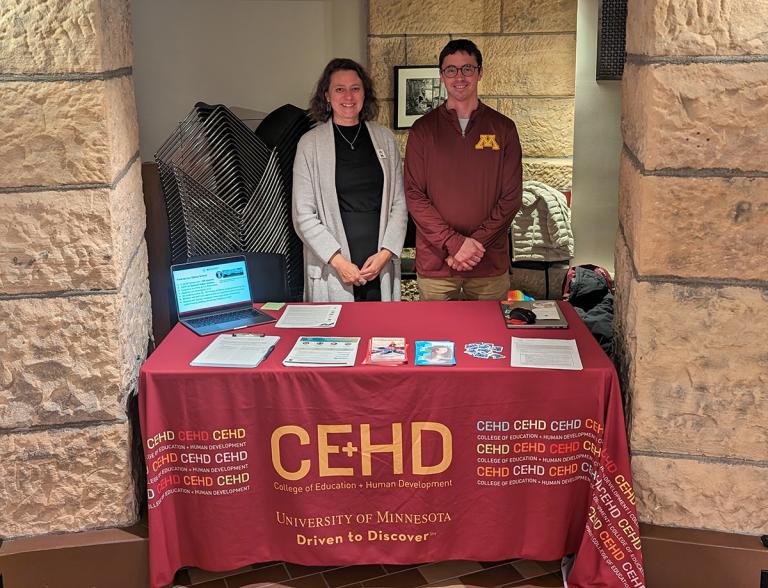
“We aim to be state and national leaders in supporting computing education that is community-oriented,” says the collaborative’s District Support Coordinator Paul Schonfeld. Schonfeld leads the implementation of programs that support K-12 CS pathways through professional development, coaching, and district planning. “We look for ways to identify barriers to participation and use evidence-based strategies to address these challenges so that all students have the opportunity to learn about computer science.”
The collaborative involves partnerships with local and national organizations and community leaders. “We are unique in how we approach developing learning experiences that are evidence-based and supported through collaboration,” says Learning Experience Designer Justin Cannady, who helps develop inclusive CS for educators and students. “We never design in a silo and are constantly partnering with other educators and organizations to ensure as many voices are heard as possible.”
Education partners
Through a National Science Foundation grant, “K12 CS Pathways for Rural and Tribal Communities,” the collaborative is partnering with four school districts in northern Minnesota to offer support as they build their own district visions for CS education. The grant is a four-year project aimed at creating sustainable CS pathways. The partner districts are part of a professional learning network that shares best practices and strategies for adding CS in elementary, middle, and high schools with a focus on supporting Native American students and students with disabilities.
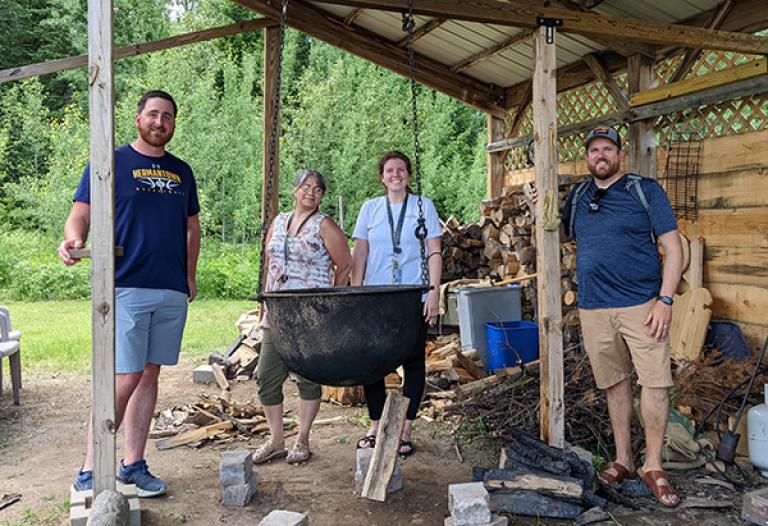
“Districts have opportunities to collaborate with our organization and partner districts as they work toward their own goals,” Schonfeld explains. “Northern Lights offers customized professional development for districts, and also helps guide them as they select curriculum and seek additional support from partner organizations.”
Northern Lights also recently received a Google Gift to support the development of an Indigenous CS curriculum unit incorporating Ojibwe and Dakota languages and cultures. Up to 15 schools with significant Native American populations will be provided with stipends for educators to attend workshops, implement a CS curriculum unit, and provide feedback to improve the materials. Northern Lights was one of only three university organizations across the country to receive funding from Googe to increase CS access and participation for Indigenous students from K-12 through postsecondary.
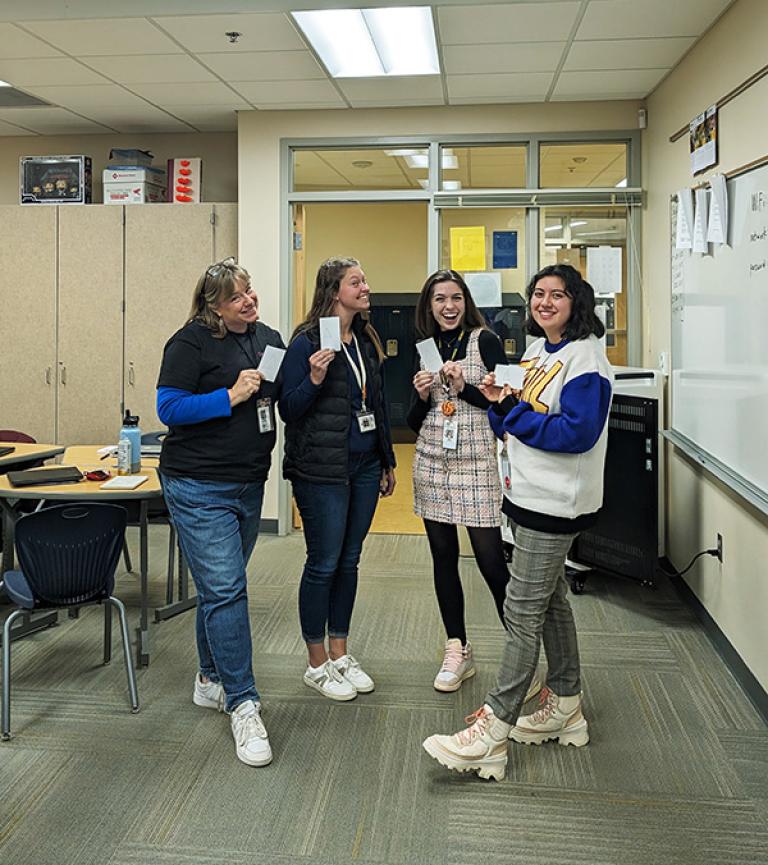
The collaborative is also partnering with youth-serving organizations in Duluth to document, study, and support opportunities for informal CS learning for K-12 youth outside of school hours. “We have received support from the national organization CSforALL, with Duluth being one of six cities participating in the inaugural cohort of the CSforALL Accelerator Program,” Schonfeld says. “The accelerator program is focused on accelerating high-need communities in their progress toward fundamental standards-aligned CS education for all learners, and increased access to interest-driven CS learning opportunities.”
Within the schools, Duluth’s elementary library media specialists are now receiving professional development in CS fundamentals and will implement CS lessons in kindergarten through fifth grade this year. Also, the district is adding or adjusting three courses in its middle schools for the 2024-25 school year. Along with these significant changes, the district reports that one of the most valuable aspects of its involvement with Northern Lights is being connected to people in other districts who are also building equitable CS pathways.
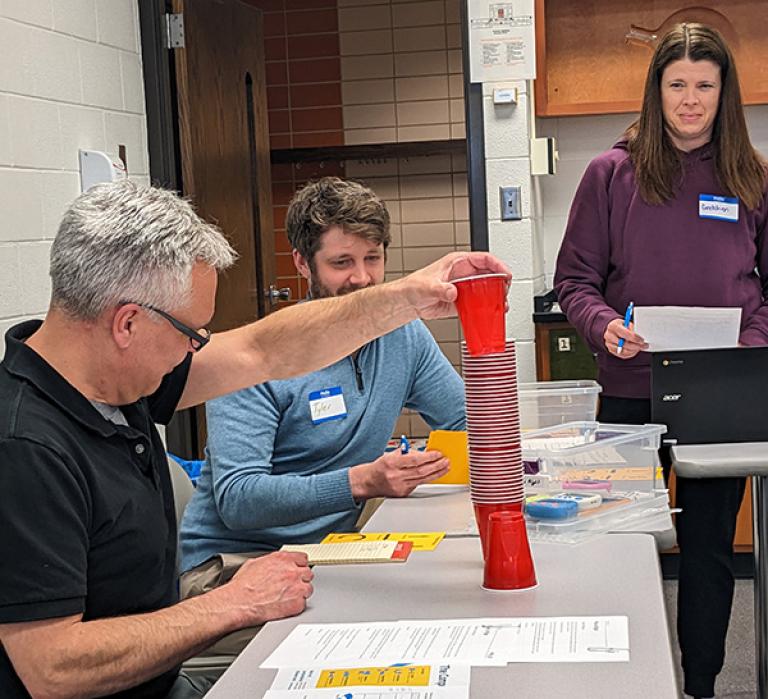
Feedback like this lets the collaborative know it is on the right track. “Success for me means building trusting relationships with the people I work with and seeing evidence that all of their students have opportunities to experience the joy and intrigue involved in learning about computer science,” Schonfeld says.
Recent legislation supports a state plan to grow CS education in Minnesota. Northern Lights Collaborative will grow in tandem. “We want to be the guiding light and a source of inspiration for other education entities by modeling ways of teaching and learning computer education so that it is inclusive to all students,” Cannady says. “We have an opportunity to bring Minnesota from last to first in computing education.”
—KEVIN MOE
Learn more: northern-lights.umn.edu
Photo credit(s): Courtesy of Northern Lights Collaborative